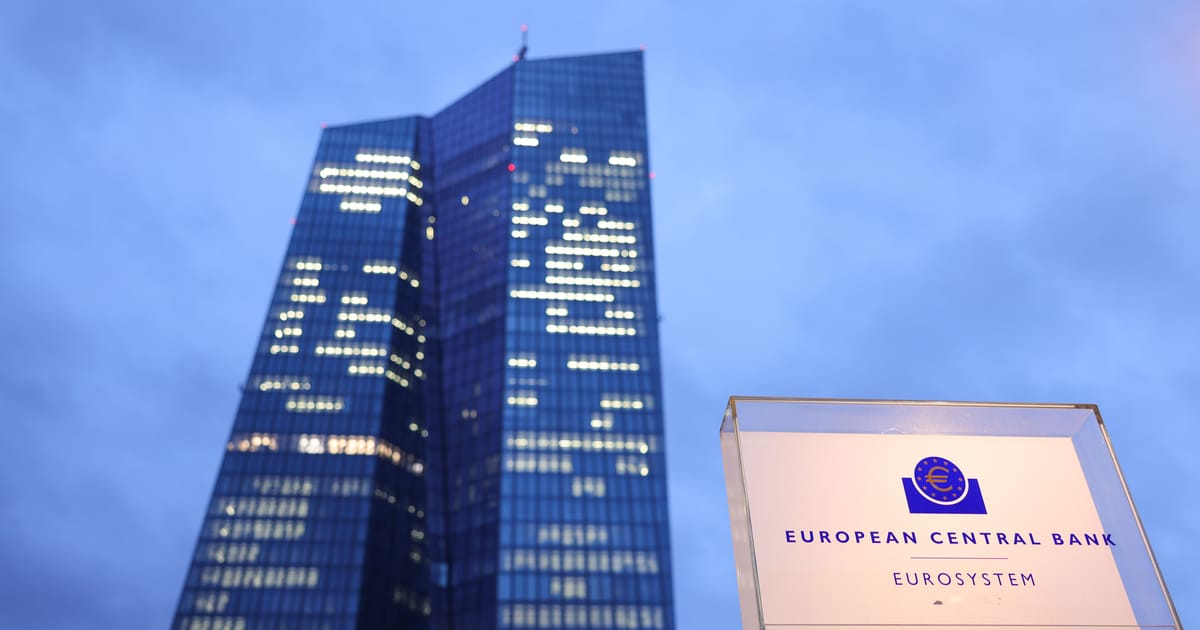The decision comes after extraordinary market volatility last week following U.S. President Donald Trump’s announcement of 10 percent across-the-board tariffs on all trading partners, as well as 25 percent tariffs on aluminum, automobiles, and steel.
The prospect of an all-out global trade war has severely dampened policymakers’ hopes for growth in the bloc, whose trade is closely intertwined with that of the U.S.
Even with the quarter-point cut, increased uncertainty was likely to “reduce confidence among households and firms,” the ECB said, adding that the “adverse and volatile market response to the trade tensions” would have a tightening effect on credit. This echoed analysis from the Bank’s regular bank lending survey, which was out earlier this week.
The Bank also changed the language from its March meeting to emphasize growing unease over the economy, swapping out “rising uncertainty” for “exceptional uncertainty.” On top of that, it reiterated its readiness to use emergency bond-buying tools to support the economy in the event of an economic crisis.
Earlier this month, ECB President Christine Lagarde suggested that the first year of heightened trading restrictions could knock 0.3 percent off eurozone gross domestic product. Bundesbank chief Joachim Nagel was more blunt, suggesting that the bloc’s prospects had “massively deteriorated,” despite a planned surge in spending on defense at the EU level and in national capitals.
The ECB had raised rates from 0 percent to 4.5 percent between July 2022 and September 2023 to fight inflation fueled by the pandemic and Russia’s invasion of Ukraine.
